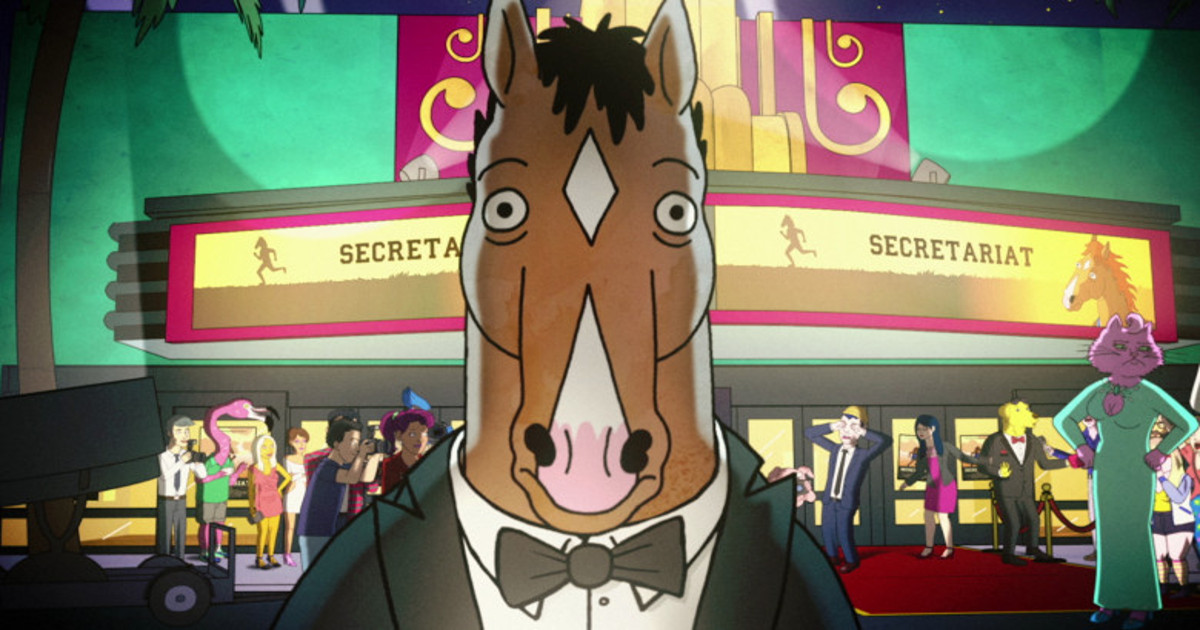Bojack Horseman, Series 4 (September 8)
Bojack, despite being one of the best original shows that Netflix has produced, is shockingly underrated. Well, critics certainly appreciate the show’s relentlessly darkness but amongst the hoi polloi the it remains an unappreciated gem, despite being genuinely funny and packed with pathos (not to mention copious animal puns).
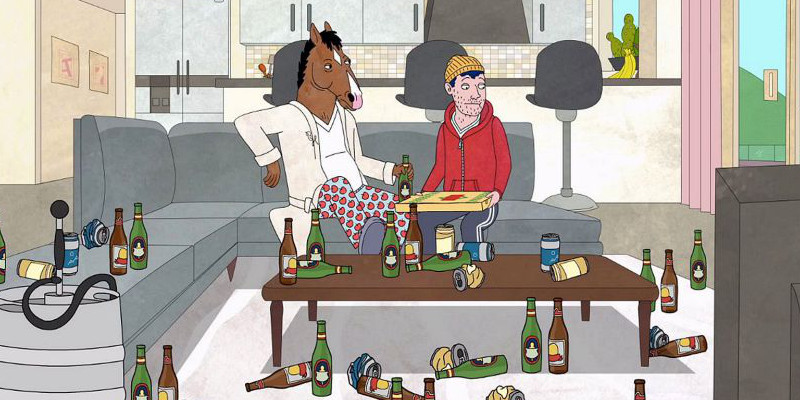
The show focuses on Bojack, a washed-up former ’90s sitcom star still dining out on the success of his past. And why wouldn’t he? When you become famous or sucessful you never have to change, or develop as a person or grow, so Bojack doesn’t. He stagnates.
All the show’s other characters develop in different ways – people get married, start businesses, cultivate lives – but not Bojack. Bojack remains an ever-bleak, black hole of dysfunction destroying everything good in his orbit. He is the narcissistic, needy dark heart that beats within us all. He’s desperate to change, but can’t.
And that’s what makes the show so brilliant.
Bojack Horseman is also show that rewards viewer’s patience; some of the show’s saddest moments are foreshadowed in its earliest episodes, making it extremely satisfying to rewatch.
The second season is better than the first, and the third is better than the second. Issues around abortion, the blind spots we create for beloved entertainers accused of sexual misconduct and all manner of distasteful aspects of life are examined, dissected, and occasionally, left entirely resolved.
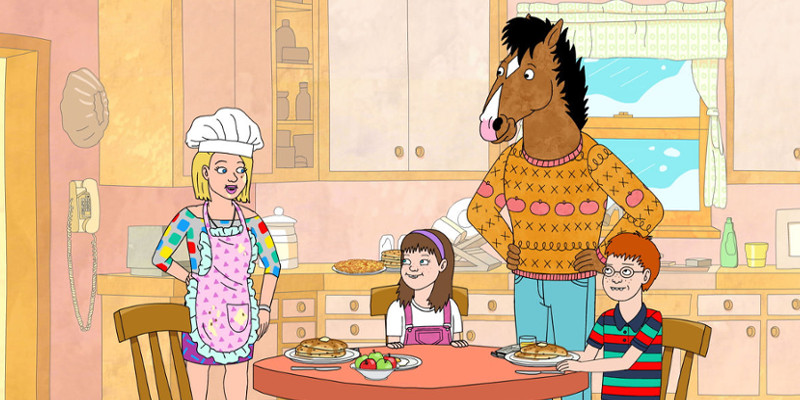
The fourth season kicks off with Bojack in absentia, and from what I can work out from various early reviews, he doesn’t even make an appearance until the 6th episode of the season which seems like a risky gambit, but I am eager to see how it plays out.
Also, the show gets bonus points for having a asexual character, Todd, whose sexuality isn’t played for laughs (although it is admittedly very funny).
Best Bojack Episodes for Beginners:
The Telescope: When Bojack finds out that his former writing partner and best friend is dying, he reaches out in an attempt to make himself feel better about the catastrophically selfish behaviours of his past. This episode (season 1, 8), falling fairly late in the series, establishes the Bojack Horseman that the rest of the show builds on: grotesque, egotistical and frighteningly relatable.
That’s Too Much, Man: another ‘heavy’ episode, this time dealing with the longterm impact of Bojack’s hideous behaviour on those who stray too close to his dysfunctional orbit. Foreshadowing in the earliest episodes points to the eventual outcome but this does nothing to diminish its impact. This is one of the episodes where Bojack becomes more than just another adulty animated TV show.
Brrap Brrap Pew Pew: Diane’s accidental tweet about abortion on behalf of 14-year-old dolphin “dubstep wunderkind” Sextina Aquafina unleashes an intense debate, and utterly inappropriate song ‘Get Dat Fetus, Kill Dat Fetus’ on the subject.
https://www.youtube.com/watch?v=k3MKSqUTr-A
The Adventures of Priscilla, Queen of the Desert
Australians! Drag Queens! Elrond from Lord of the Rings!
The Adventures of Priscilla, Queen of the Desert follows Sydney drag queen Anthony ‘Tick’ Belrose (whom you might recognise from the Matrix, Lord of the Rings, The Hobbit) who accepts an offer from his estranged wife to perform his drag routine at her hotel in Middle of Nowhere, Outback Australia.
Tick takes two companions along for the ride: caustic, newly-bereaved trans drag queen Bernadette Bassinger (unusual, but excellent casting of Terrance Stamp) and boisterous, bratty Felicia (played with campy aplomb by Guy Pearce).
Together the three queens pile into a battered old tour bus, which they christen ‘Priscilla, Queen of the Desert’ and hit the road. Along the way they encounter, scary small-town homophobia (exacerbated by Felicia’s admittedly hilarious drug-fuelled shenanigans) but also some open-minded indigenous Australians.
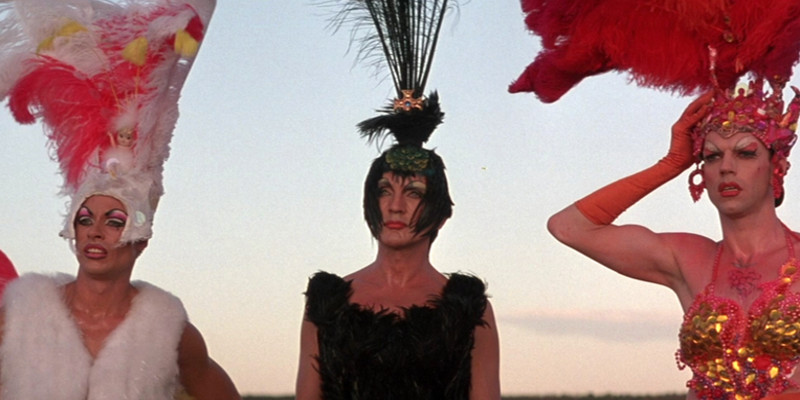
And there is of course an obligatory appearance by ubiquitous ’90s Aussie film fixture, Bill Hunter (aka Muriel’s dad or ‘that judge from Strictly Ballroom’) as a soft-hearted, albeit somewhat racist, small-towner who falls for Bernadette.
The film is so 1994 in some ways it’s painful, from the Abba-revivalism to the eye-gouging primary colour palette to the casual racism/ sexism. But for all that, its a solid effort whose stand-out scenes aren’t the incredibly over the top drag numbers or even the biting badinage between the queens but the ones that deal with the less fantastic aspects of life – like explaining to your son that you’re a gay professional drag queen.
Priscilla is a queer cinematic gem released at a time when Australia was still knocking out the comedies like a kangaroo Conor McGregor. If you haven’t seen it, get on it now.
Rick And Morty (Season 3….eventually)
Rick and Morty is one of those shows that utterly polarises viewers. The basic premise is almost nicked wholesale from Back To The Future: an eccentric, curmudgeonly inventor and his grandson go on high-concept adventures through space and time. Sounds pretty generic so far, right? WRONG.
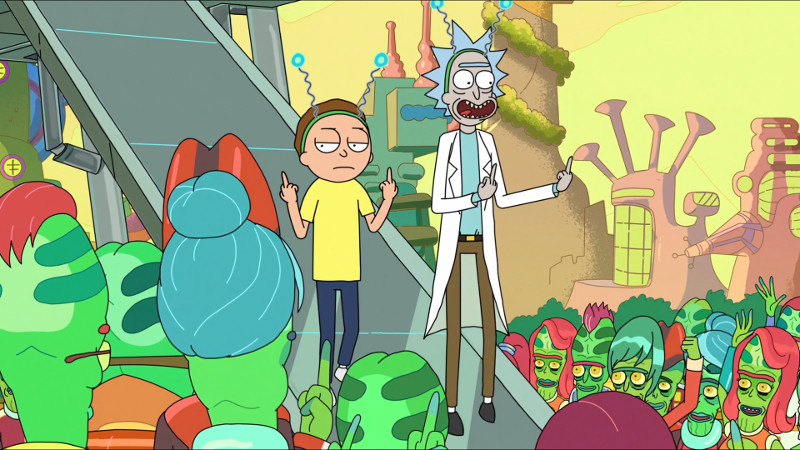
Firstly, Rick and Morty has distinctly ad-libbed, jazz-like feel – no mean feat for a cartoon to achieve. Like most successful shows it is really an exploration of family dynamics. Unlike most successful animated family comedies it resolutely resists easy marketing – obligatory catchphrases included to placate network execs are nonsensical (‘Wuba-luba-dub-dub’, ‘Get schwifty’) and even popular tertiary characters have names which resist easy merchandising (like Birdperson and Mr Poopybutthole, for example). And it’s all part of the show’s off-beat brilliance.
In the Smith family, father Jerry (whom sharp-eared cartoon aficionados will recognise as the voice of Cyril Figgis in Archer) is a weak, but well-meaning coward whose lack of employment makes him the continual butt of the family’s vacillating opprobrium and sympathy.
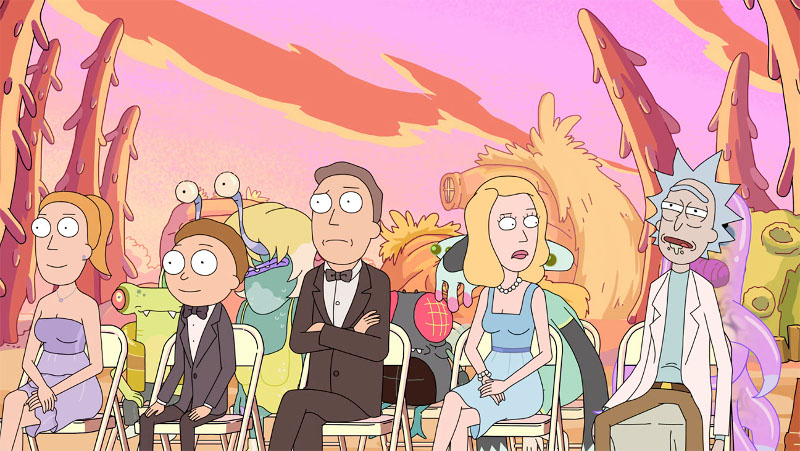
Wife Beth, daughter of Rick and a “horse heart surgeon” half-heartedly resents Jerry for impregnating her as a teen and trapping her into a life of bland suburban domesticity. Daughter Summer is a generically drawn teenager girl – equal parts pop-culture insight and inane teen vacuity.
The show focuses on the relationship between scientist Rick Sanchez and his grandson Morty Smith. Morty is a nice, average teenager boy. Rick is an enormously intelligent asshole.
Moving into the third season, things have come unstuck for the Smiths with the separation of Beth and Jerry. The fall-out causes strain for the whole family; Beth’s inability to confront Rick about any of his shortcomings for fear of replaying her childhood abandonment leads her to prioritise mollifying Rick above everyone else.
The week-by-week release schedule throughout September has been incredibly frustrating, but by the end of the month the whole season will be available for a proper binge. Wuba-luba-dub-dub.
If you’re new to the show here are some stand-out episodes:
Rixty Minutes: the family peruse some interdimentional cable TV shows, like Ball Fondlers and a Weekend at Bernie’s parody called Last Will and Testimeow: Weekend at Dead Cat Lady’s House 2.
Total Rickall: The family become involved in a locked-room drama when they become infected with a brain parasite which implants false memories into their minds.
What are you jazzed about on Netflix this month? Let us know in the comments!
© 2017 GCN (Gay Community News). All rights reserved.
